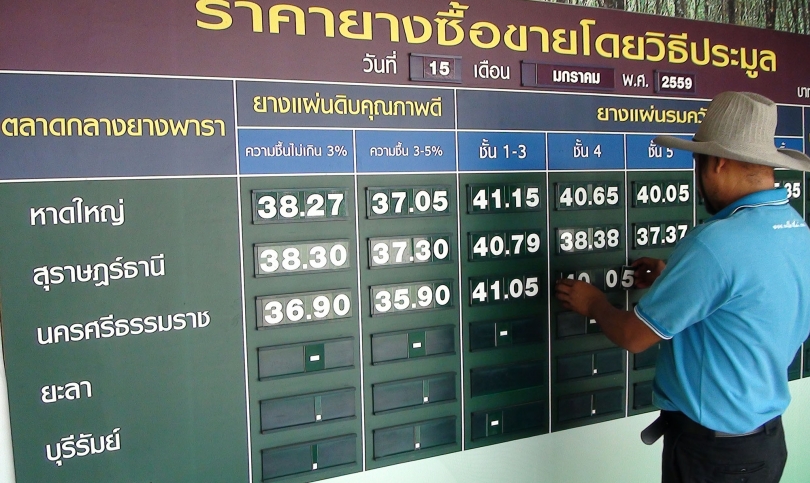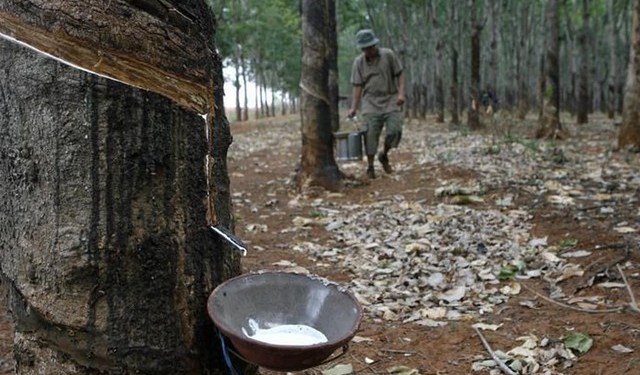PHEU THAI PARTY politicians yesterday criticised the government over its decision to buy rubber sheets from growers at higher than market prices, saying that other groups of farmers should get similar help.
 Some of them also warned that Prime Minister Prayut Chan-o-cha could face legal action similar to that against former PM Yingluck Shinawatra if his government’s measures resulted in irregularities.
Some of them also warned that Prime Minister Prayut Chan-o-cha could face legal action similar to that against former PM Yingluck Shinawatra if his government’s measures resulted in irregularities.
Yingluck is being tried by the Supreme Court’s Criminal Division for Political Office Holders for alleged negligence and dereliction of duty in connection with her then-government’s corruption-plagued rice-pledging scheme.
Surapong Tovichakchaikul, a key Pheu Thai figure, noted that General Prayut’s Cabinet last week resolved that government ministries set aside budgets to buy rubber from the growers.
“If there is irregularity in this project and causes damage to the country’s budget, who will take the responsibility?” he asked.
He also expressed concern that middlemen and rubber traders might get a larger share of the fund than rubber growers.
“I think General Prayut does not know what would happen. Irregularities may be found in this project. This is the same for Yingluck in the case of the rice-pledging scheme,” he said.
Surapong, who served as foreign minister in Yingluck’s government, called on the prime minister to help other groups of farmers who were also experiencing problems related to the falling prices of their produce, including rice, tapioca, longan and lime.
Nuttawut Saikuar, a Pheu Thai politician and leader of the red shirts, said in a Facebook message that the government should launch urgent measures to help rice farmers. “The government already has the answer for rubber growers, now they also should have the answer for rice farmers. What to do to prop up the falling paddy prices and the drought problem?” he said.
Yanyong Puangrach, a Pheu Thai politician and a former deputy commerce minister, said in a Facebookmessage that the government’s plan to buy 100,000 tonnes of rubber was insufficient in terms of helping affected rubber growers.
He said there were more than 1.6 million households of rubber growers all over the country and there was as much as 700,000 to 900,000 tonnes of rubber supply in the market.
Meanwhile, Democrat Party leader Abhisit Vejjajiva said rubber prices were going up in response to the government measure to buy rubber directly from farmers.
“This is a good development. But I would like the government to do it in an integrated way,” he said, adding that the government should ensure that all road works are paved with rubber components in order to boost demand.
In Khon Kaen province, rubber growers are satisfied with the government’s offer to buy their produce at Bt45 a kilogram, according to local rubber farmer Sawian Phumirat.
He said, however, that rubber prices had not increased in northeastern provinces despite the government’s intervention.





























